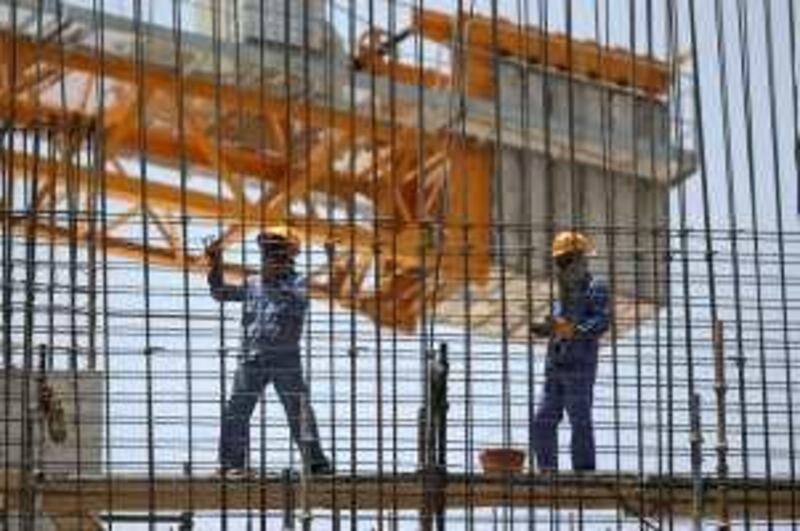Steel plant expansions under way across the country will add more than one million tonnes of capacity this year, but the UAE will still rely on imports for half of its steel supply, the chief executive of RAK Steel, the country's second-largest producer, said Thursday. The company announced it would move forward with a 50 per cent capacity expansion at its mill in Ras al Khaimah, which will take total annual production to 750,000 tonnes by the end of the year at a cost of US$15 million (Dh55m). The output from the expansion, together with the start-up of two mills in Musaffah, will be absorbed by the local market, said Ajay Aggarwal, the chief of RAK Steel. "Even after commissioning of all these mills, it will not be enough for the current demand, which is a reduced rate for the UAE," he said. "Slowly the local production will replace imports. There's still a 50 per cent gap between imports and exports." RAK's new mills were supposed to come online at the start of the year, but the company delayed their launch because of poor conditions in the steel market. Spot steel price on the London Metal Exchange (LME) fell more than 70 per cent to below $300 per tonne last fall before recovering slightly. Mediterranean steel traded at $330 per tonne yesterday on the LME spot market. RAK Steel plans to invest up the steel value chain with construction of a $150 million plant to produce steel billets, the raw material for the mill that is currently imported. The company will begin producing the billets within three years from scrap metal, Mr Aggarwal said. RAK Steel is a joint venture between the Ras al Khaimah Investment Authority (RAKIA) and Middle East Traders Group, which will together directly fund part of the expansion. The company expects the rest of the project to be financed by a consortium of local banks, Mr Aggarwal said. UAE financiers took aim at the steel market in the last several years as the construction boom drove up imports of steel beams and reinforcement bar. The onset of the financial crisis saw projects delayed and regional producers reduce output, but market conditions are slowly recovering. "In about two years, we expect the construction market to get back to Pre-2008 levels and thereafter maintain a growth trend of around 5 per cent," Mr Aggarwal said, adding that price volatility would also fall as the economy recovered. RAK Steel remained a priority of the emirate's government, he said. "The vision of His Highness is to make Ras al Khaimah self-sufficient in building materials," he said. "Steel is a major infrastructure product. This part of the world should not be so dependent on oil." In Musaffah, Emirates Steel Industries is completing the commissioning of a new integrated steel production line that will produce steel billets from iron oxide, with output of 2 million tonnes of steel products annually. The firm says it will complete a second production line next year that will produce 1 million tonnes of steel per year. Two additional expansions will increase its production capacity to 6 million tonnes over five years, potentially allowing it to control a majority of the domestic market. cstanton@thenational.ae
UAE to remain net steel importer
Steel plant expansions underway across the country will add over one million tonnes of capacity this year, but not enough to meet local needs.

Editor's picks
More from the national




